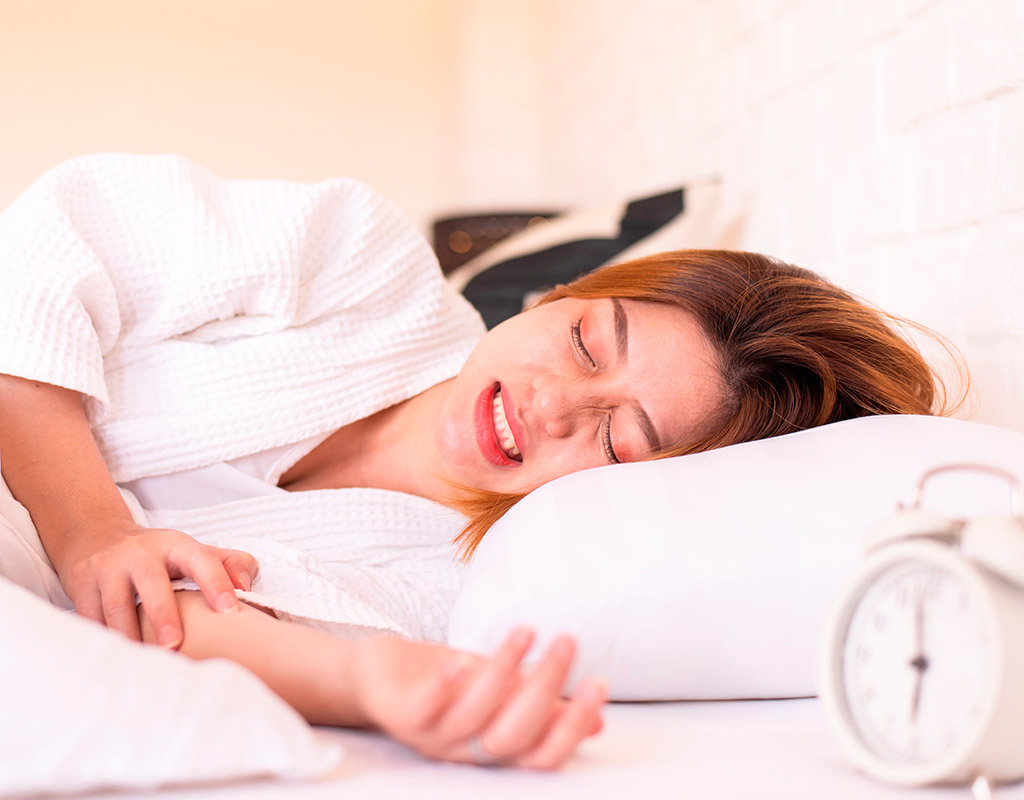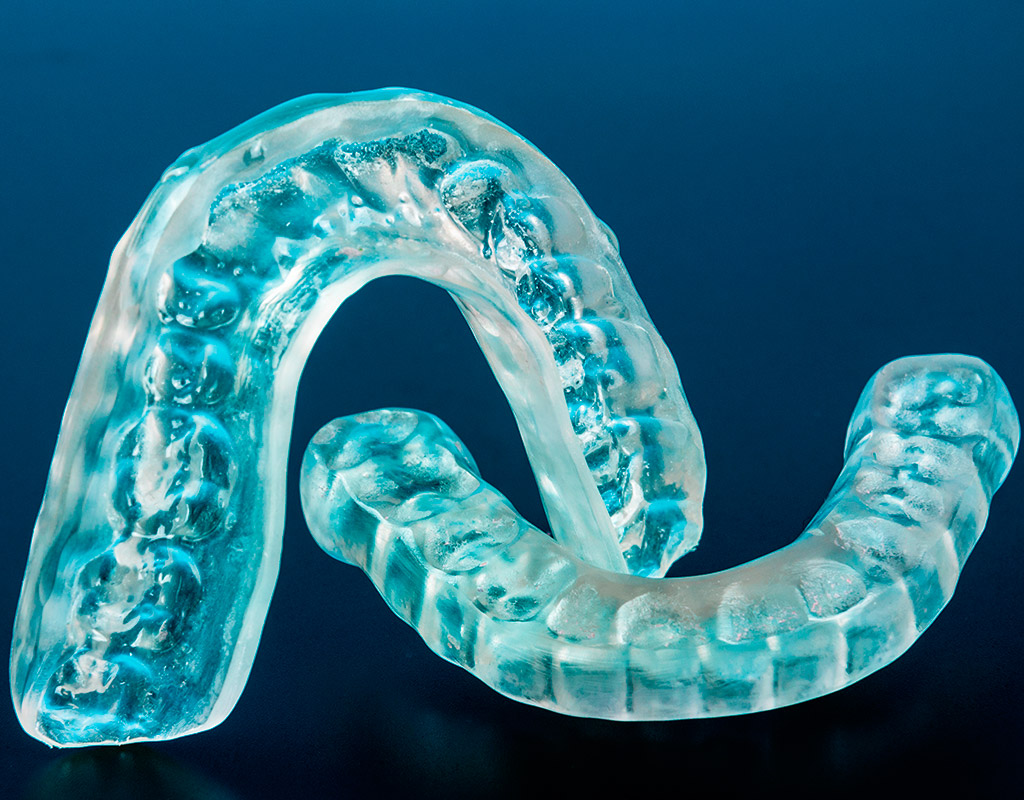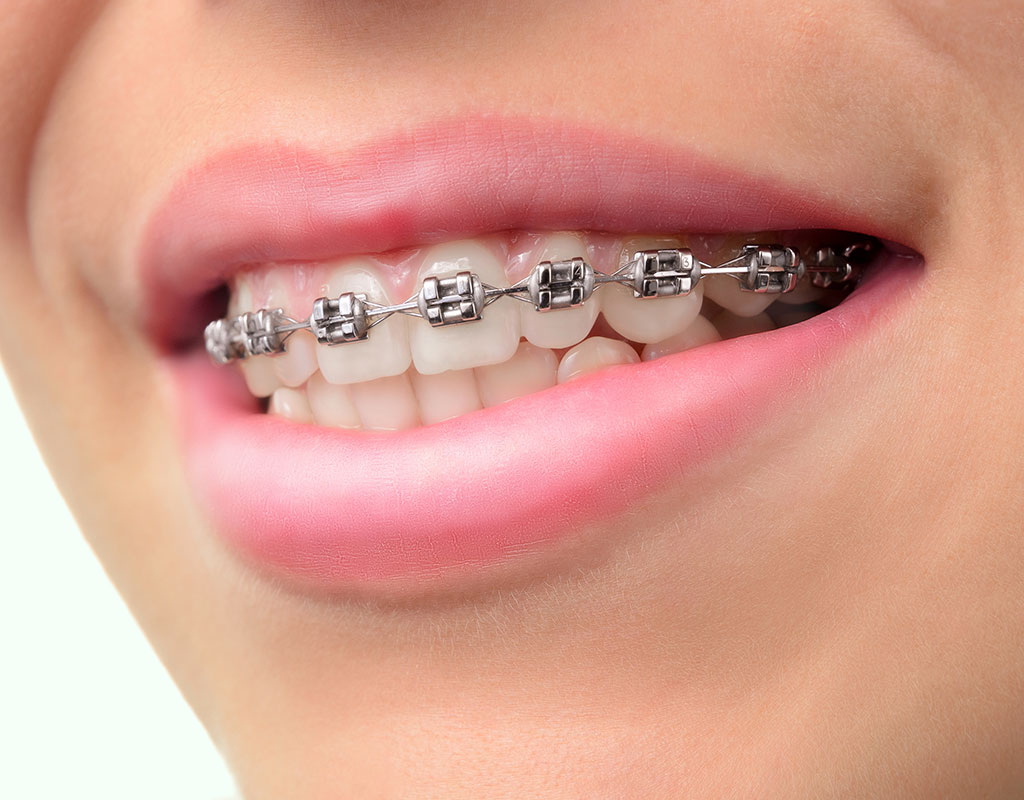What is bruxism?
Bruxism is an involuntary habit that takes place during the day or at night and that consists in tightening, clenching, and/or grinding the teeth.
Most of the times, it happens while we sleep, so many people are not aware of it. However, bruxism may also happen while wide-awake, which makes it easy to detect and treat it.
This habit has negative consequences on people’s dental health and its effects on teeth are irreversible and cumulative throughout time. This is why an early diagnostic is crucial.

What causes bruxism?
The reasons behind the involuntary teeth grinding are varied. Its origins are still unclear but they can be found in external, internal or psychological factors.
Some of the most common causes are teeth or jaw malocclusion, stress, periodontal illnesses, and eating, postural or sleeping habits.

Most common negative consequences of bruxism in Santa Coloma de Gramenet:
Bruxism triggers a series of negative consequences to the person who suffers it. That is why it is important to pay attention to the following symptoms and reach out the odontologist for its assessment.
- Tooth sensitivity and worn down teeth, the most common problem.
- Clipped teeth (natural, prosthetics, dental implants or restorations).
- Dental mobility, since the periodontium becomes loose.
- Neck muscle problems.
- Swollen, weakened or retracted gums.
- Chewing noises.
- Ear pain or buzzing.
- Insomnia or sleep deprivation.
At our Aldana Dental Clinic, we will perform a complete check-up to diagnose bruxism
Different treatments for bruxism at our Aldana Dental Clinic in Santa Coloma de Gramenet, depending on origin and consequences:
01. Mouth guards
Mouth guards are transparent devices that are placed in the mouth (usually in the upper jaw) to improve the issues that bruxism cause on teeth.
Its main function is to protect the teeth by cushioning or softening the pressure on and the involuntary movement (grinding) of teeth on patients with bruxism.
Its shape is completely customized: measures of the mouth are taken so that the guard adapts perfectly to the dental anatomy of the patient.
Mouth guards are made of a very resistant and durable acrylic and its thickness varies between two and three millimetres.

02. Orthodontics
When bruxism is clearly caused by a malocclusion or a cross bite, the odontologist will suggest orthodontics. With well-aligned teeth, the pressure of the later on the jaw will be restored.


As mentioned, bruxism has multiple causes that can be either physical or psychological. Finding the source of the problem when feeling anxious or stressed out can help us target the issue of bruxism by getting psychological support.
